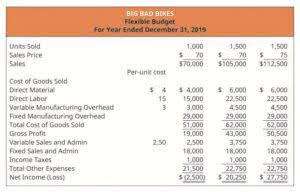What Is Royalty Accounting & How It Is Calculated? Chron com

The application of royalty accounting varies across different sectors, reflecting the unique characteristics of each industry. From the pages of publishing to the streaming of music and the licensing of technology, the principles of royalty accounting adapt to the contours of each field’s business model and intellectual property landscape. The resolution of royalty disputes often hinges on the quality of record-keeping and the clarity of contractual terms. Detailed records facilitate a smoother audit process and can prevent or quickly resolve disputes. Contracts that clearly define payment terms, audit rights, and dispute resolution procedures minimize the risk of misunderstandings.
- With all of that said, it’s important to note that royalty agreements should always benefit both the licensee and the licensor.
- Royalty audits are examinations of royalty transactions and related records to ensure compliance with contractual terms.
- Since the developer earns 8.00 for each game sold, the 5,000 represents a prepayment of 625 (5,000/8) sales.
- They are agreements or licences that spell out the conditions under which a third party can use assets that belong to another.
- Sometimes a lessee grants a sub-leaseto another person either for the whole land or for the portion of it.
- Agreements should benefit both the licensor who receives the royalty and the licensee who pays the royalty.
- There can also be a variable percentage outlined when it comes to royalty income.
Advance on Royalties Income
The licensing agreement defines the limits and restrictions of the royalties, such as its geographic limitations, the duration of the agreement, and the type of products with particular royalty cuts. A royalty is a payment made to an individual or company for the ongoing use of their property, including copyrighted works, franchises, and natural resources. A royalty compensates owners when they license their assets for another party’s use.
Short Workings or Dead Rent That Is Redeemable

This is particularly important for companies with global operations or those that license their intellectual property across different jurisdictions. The harmonization of accounting practices under IFRS also aids multinational corporations in consolidating their financials, reducing the complexity that arises from dealing with disparate accounting rules. The landscape of royalty accounting is not confined within national borders; it is influenced by international standards that aim to bring uniformity and comparability to financial reporting across the globe. IFRS 15, for instance, has a significant impact on the recognition of revenue from contracts with customers, including those involving royalties. This standard requires entities to allocate the transaction price to the performance obligations in a contract and recognize revenue when (or as) the entity satisfies a performance obligation. In the case of average royalty rates in music, for example, the license agreements might specify that there is a set amount that will get paid for every time a musician’s song is played on the radio.

Ground Rent
Royalty accounting in the technology sector often revolves around the licensing of software, patents, and other intellectual property. Companies may license their technology to others for use in a variety of applications, from software solutions to consumer electronics. The terms of these licenses can be highly variable, with royalties based on factors such as the number of users, the volume of production, or a percentage of the licensee’s sales. For example, a patent holder might receive royalties based on the number of units sold that incorporate their patented technology. Additionally, cross-licensing agreements, where companies exchange access to their respective technologies, add another layer of complexity to royalty calculations. Measuring royalty obligations involves determining the amounts payable to rights holders, which can be a complex process depending on the terms of the royalty agreement.
Importance and Advantages of Royalty Accounts4. Difference
When you invest in music royalties, you’re essentially buying a share of the income generated every time a song is streamed, downloaded, or played. 2002— So, again, as actual royalty is more than the minimum rent by Rs. 4,000 (Rs. 15,000 – Rs. 10,000) it should be recouped against the un-recoupable part of short-working https://www.bookstime.com/ of 1998. Still, there was a balance of Rs. 4,900 (Rs. 10,000 – Rs. 1,100 – Rs. 4,000) for 1998. For those granting the rights, it allows them to earn passive income and benefit from their invention, property, or ownership. For those acquiring the rights, it can help them enhance their products.
- The lessee is the individual who purchases the right to the asset from the lessor.
- If the rights are sold, the owner gets paid for this, known as royalty.
- There are two parties in royalties accounting; the lessor and the lessee.
- Download a free copy of MetaComet’s Royalty Automation Handbook and see how you can reduce your effort by up to 90%, simplify your processes and maximize accuracy in your royalty accounting.
- Difference of minimum rent and actual royalty is known as shortworkings where payment of Royalty is payable on the basis of minimum rent due to shortage in the production or sale.
- Additionally, advances against royalties are common in publishing contracts, where an author receives an upfront payment that is later offset by earned royalties.
C) Royalty is transferred toproduction or profit & loss account , but minimum rent is not transferredto royalty account. And the songs available on the platform are from some of the biggest artists of all time. Most of the top nominees for this year’s royalty in accounting VMA’s have some of their biggest hits available for fans to invest in on the platform. Once you sign up in just a few minutes, you can start making offers and earn money each month or quarter when royalty payments are sent from distributors.
Franchise rights
workings and Its recoupment8.
- By preventing revenue recognition on sales- or usage-based royalties until the later of these two criteria have been met, the FASB has removed the uncertainty in estimating these royalties.
- However, they can be negotiated on a case-by-case basis according to the wishes of both parties.
- The significance of royalty accounting extends beyond mere compliance; it’s about ensuring fair compensation in an increasingly digital economy.
- In the licensing agreement, they might specify that the sale is in return for royalties generated from future revenues that the product earns.



